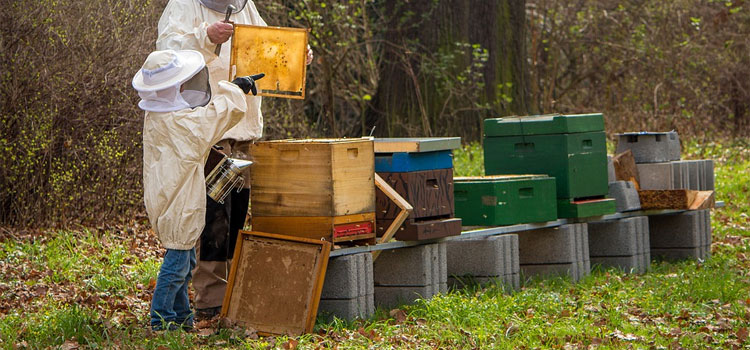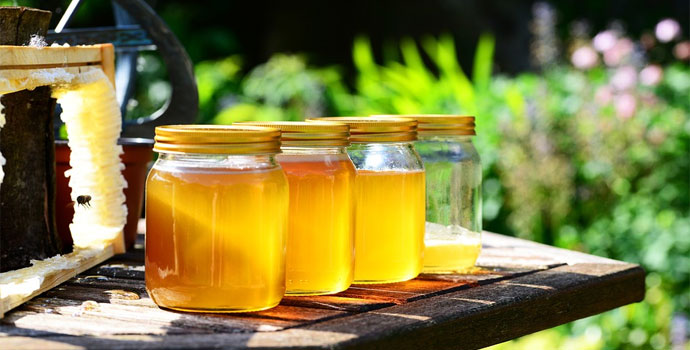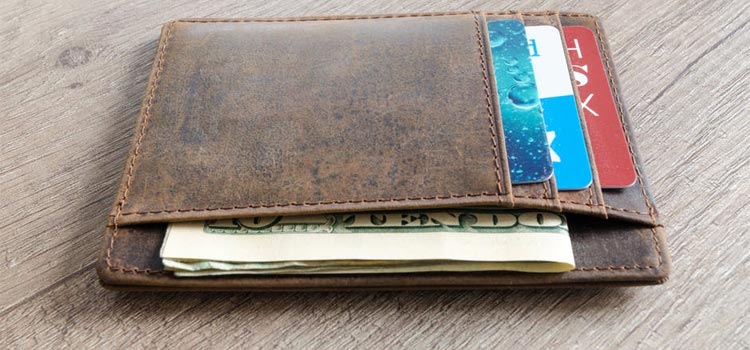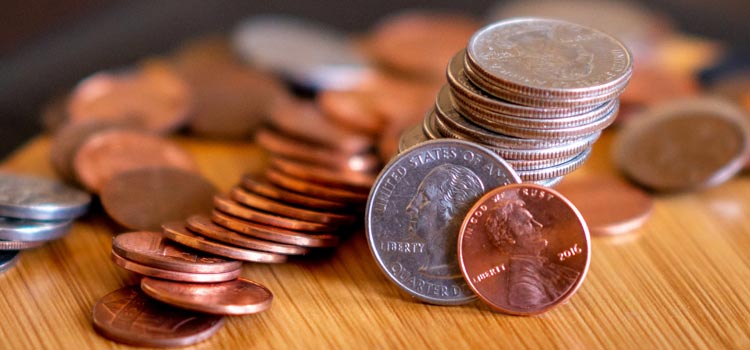We live in a world where people can make money beekeeping from home.
- Inbox Dollars - Get paid to check your email. $5 bonus just for signing up!
- Survey Junkie - The #1 survey site that doesn't suck. Short surveys, high payouts, simply the best.
- Nielsen - Download their app and get paid $50!
Hundreds of people do it on the side and earn cash from their passion.
Others have turned their home-based beekeeping business into a full-time venture and their main source of income.
Are you curious about what you need to start a beekeeping business?
Look no further.
Learn the ways you can make money beekeeping from home, what requirements you need to gather, and how to turn your beekeeping business into a profitable one.
How to Make Money Beekeeping From Home
From the conventional to the not-so-conventional, here are some of the ways you can earn money from beekeeping.
1. Selling Honey
Probably the first thing you think about when you hear “beekeeping” is honey.
Fake or adulterated honey is a real problem, and it’s widespread enough that many consumers don’t trust the honey in grocery stores or supermarkets.
There is also a high demand for raw honey for its nutritional value; commercial honey is often pasteurized, which destroys pathogens but also destroys nutrients.
You would need a little trial and error to know the right time to harvest and how much to take so that the bees don’t starve.
Keep in mind that the flavor of your honey will differ depending on where your bees get their nectar. For instance, if your bees like clover, the honey they produce will taste different from honey made by bees that like orange blossom.
2. Selling Beeswax
When you harvest honey, you remove the wax caps to access the honey. These wax caps can be strained and processed into beeswax that you can either sell in its raw form or use to make your own products.
Beeswax is highly sought after in the cosmetics industry as well as the candle industry, so you’ll likely have buyers of even the raw form.
You can also make beeswax-containing products yourself. Handmade goods like lip balm, hand cream, or healing salves are popular.
The markup is pretty decent, especially if you’re making the products yourself and selling them online or at the farmer’s market with minimal overhead or rent.
3. Selling Pollen
Bee pollen is a source of protein for the brood, the babies of the hive. It’s collected outside of the hive through pollen traps at the entrance.
As with honey, you need to be careful you don’t deplete the hive.
The problem is if you’re beekeeping in an urban or farming area, there’s a risk that the pollen is contaminated with pesticides.
But if you’re in an isolated area, you can collect, clean, frozen, and sell bee pollen.
4. Selling Propolis
Bees produce propolis, a resin-like sticky substance, from the buds of cone-bearing trees to seal cracks in their combs and disinfect it.
Harvesting and selling propolis is yet another way to make money beekeeping.
Propolis’ antibacterial, antifungal, and anti-inflammatory properties make it in demand for those who are into alternative and complementary therapy.
No joke. Here are the fastest ways to make easy money online. Click here to see how.
5. Offering Bee Venom Therapy
Bees excrete venom through their stingers when they sting a threat.
Why would anyone be interested in bee venom, though?
Scientific studies have actually found that bee venom contains anti-inflammatory compounds, peptides, phospholipase A2, and melittin, which have therapeutic effects.
Currently, the delivery of bee venom for therapeutic purposes involves stinging oneself in the affected areas.
Bee venom is also used in skincare products, particularly serums and creams, to reduce wrinkle depth and wrinkle count. However, extracting bee venom for cosmetics requires expensive, specialized equipment.
Extracting bee venom or using it for therapy involves having the bee sting, which is fatal for the bee. If you dislike the idea, you may not want to go this route.
6. Offering Commercial Pollination Services
The bee population is dwindling. Everybody knows this.
But industries that rely on bees for cross-pollination, such as the almond industry, feel the effects more significantly. They’re the ones who have to import bees from other states during the blooming season in order to obtain enough production for the year.
Unfortunately, the demand for pollinator services is high, since bees continue to decrease in population each year. The good news for beekeepers is that this demand can be an opportunity for extra money.
7. Selling Pollinator Seeds
Selling pollinator seeds and seedlings do not require transferring bees to another location; only the “food” that attracts bees to a particular garden.
Individuals and businesses look for this service so that they can get pollination services without having to maintain beehives.
8. Selling Beekeeping Equipment
Beekeeping equipment is widely available in the market, but as you’re going to discover, you may require some specialized equipment.
For example, beehives may work better with custom-made feeders, screens, escapes, and so on.
Having the knowledge to create custom workarounds on ready-made equipment is a skill in itself and many beekeepers are cashing in from this demand.
There are also other money-making opportunities in the beekeeping industry, such as consultation services.
Maintaining beehives is hard enough, but doing it for profit makes it 10x harder. Other people would gladly pay you to guide them every step of the way of starting a beekeeping business from scratch.
Home-Based Beekeeping Business Requirements
Like any business, you’ll need to comply with a few requirements before you can make money beekeeping. These include:
Basic Equipment
Here are some of the basic equipment you’ll need to start your beekeeping business.
- Beehive
- Hive Tool
- Bee Brush
- Bee Smoker
- Protective gear
- Frame grips
You can also invest in specialized equipment, such as Flow Hive, which allows you to harvest honey from your beehive straight into jars.
You can make money from home and it doesn't have to be challenging. Click here to see how.
Paperwork
Aside from getting a business permit from your city or state, there are other specific beekeeping-related documents and paperwork you’d have to complete.
Your house where you will be beekeeping must be licensed and inspected annually.
Note that this is important because not everyone is allowed to take care of bees. Check if your home is zoned for beekeeping and if your homeowner’s association allows beekeeping or not.
If permits are gathered, you may also have to register bees (some states do not need this though).
Beekeeping inspection, licenses, and laws may vary among states, so it is best to check your state’s department of agriculture.
Startup Costs
If you’re starting the business from scratch, you’ll need money to buy equipment and starter bees, attend workshops, get insurance and settle government paperwork that requires fees.
Those who began beekeeping as a hobby may also need funding for expansion unless of course, the beehives you currently have are enough to sustain the number of honey jars, amount of beeswax for cosmetics, or generally the size of the company you want.
As a beekeeper, you’ll be considered a farmer and you’d likely receive special tax considerations. Check the IRS Farmer’s Tax Guide to get an idea.
In the U.S., setting up a single hive is about $600, depending on the type of boxes, tools, equipment, and beekeeping wear you buy.
For a more realistic look at all the equipment (and its corresponding cost), take a look at this article.
Space for Bees
If you’re interested in beekeeping mainly because you can technically run this business from home, it isn’t as simple as that.
The space available within your land should have enough food for bees without being a nuisance to your neighbors, livestock, or pets.
Insurance
Beekeepers aim to produce safe products, whether they focus on honey or its byproducts.
But being 100% careful and following rules doesn’t guarantee that your products will be safe 100% of the time. Having insurance in place prevents you (the person) from being liable if products from your beekeeping business become entangled in safety concerns or lawsuits.
Aside from these requirements, you’d also need to be constantly aware of new laws, the use of treatments, techniques in swarm collection, raising queen bees, or preventing diseases. You’d have to attend workshops regularly and be up-to-date with beekeeping news.
In addition, packaging (bottles, labels, and other materials), as well as labeling and marketing will also add to your expenses.
Should You Start Beekeeping From Home?
Making money beekeeping is not a walk in the park. Here are some pros and cons to consider before taking the plunge.
Benefits
Beekeeping isn’t too expensive to start.
A starter kit with a beehive and basic beekeeping equipment will set you back around $450 to $600.
It may sound like a lot, but compared to other home-based businesses, it’s pretty low.
Plus, if you decide that beekeeping is not for you, you can always sell the equipment, even at a loss.
Bees are low-maintenance.
Once a colony is established, you don’t need to spend hours a day monitoring them.
Depending on the climate, a few minutes to an hour a day is enough to check on your colony; probably longer during colder weather and during the winter.
Beekeeping is a rewarding hobby.
Tending bees can be a calming and peaceful experience, whether you do it for profit or not.
Experienced beekeepers report that watching their colonies build their homes, forage for food and water, make honey, and do their different dances to communicate is an amazing experience.
Risks
You risk getting stung.
If you’re one of the unfortunate people allergic to honey bee stings, a single misstep can cause serious medical problems or even death.
Your colony may just suddenly fly off or even die off.
Bee populations have been declining for the past several years, and your bees aren’t immune.
They may get diseases, parasites, or contaminated with pesticides.
You need a dedicated space for your hive.
You can’t just set up a beehive anywhere. The hive needs a sheltered area and a nearby source of nectar and water.
Also, bees take the quickest path from their food source to their hive; they’re not very considerate of people and pets that can cross their path.
Maximize Your Beekeeping Profits
Beekeeping can make you some excellent cash, but here are just some more tips so you can get the most out of your beekeeping business.
Learn all about your bees.
Being a successful beekeeper hinges on your knowledge of the bees themselves.
Learn all about honey bees, what makes them thrive, how they behave, and how external variables can affect them.
Research all about what kills a colony: parasites, pathogens, colony collapse disorder, poor nutrition, and pesticides.
Be realistic about the money you can make beekeeping.
If you’re expecting an immediate payout, you’ll be very disappointed. It takes around a year or two of hard work and intense learning to be able to recoup your startup costs.
Labor, equipment maintenance, taxes, disease, and other factors can increase your startup costs.
Also, you might find that bee products are not going to be your top money-makers, although very much in demand; you’ll earn more from renting out your beehives (at $100 to $200 a hive).
Get into as many income streams as you can.
Successful beekeepers take advantage of all possible ways to make money from their bees.
They harvest and sell bee products, create their own bee-based goods, then offer commercial pollination to businesses.
Some may even become beekeeping consultants, coaches, or instructors to pass on their wisdom.
Join beekeeping communities.
You can use the wisdom and encouragement of other beekeepers, especially in the beginning.
Joining beekeeping communities also provides you with awesome networking opportunities.
There may be a local Beekeepers Association near you, or you can try to find online communities on social media and beekeeping-focused forums and websites.
In time, you’ll be the one dispensing out advice and inspiration.
The Bee-ttom Line
The future of beekeeping is alive and well, as it should be, since the bee crisis isn’t even close to being solved.
Bees are also being wiped out by colony collapse disorder all around the world, so not only will you be able to help replenish our earth-saving bees, but you can also earn passive income with beekeeping.
If full commercial beekeeping is not your call (or if it turns out you’re allergic to bee stings), but you’d love a business centered on animals, check out my guide on how to start a dog daycare business from home.
Here are some more home-based business ideas to check out.
Thinking of starting your home-based beekeeping business? Share your plans with us in the comments below!






